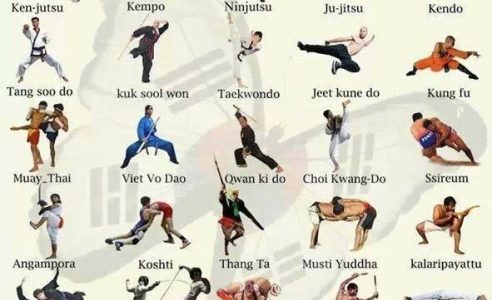The History And Ideology Of Martial Arts: A Deep Dive
The History And Ideology Of Martial Arts: A Deep Dive
Blog Article
Short Article By-Moesgaard Barbour
Step into the ancient world where martial arts were born out of necessity in diverse areas. Cultures crafted distinct combating designs linked with historic contexts. Techniques evolved over centuries through committed method and social exchanges. Today, modern martial arts mix conventional components for optimal effectiveness. Philosophically, martial arts emphasize technique, self-improvement, and harmony. Regard, humility, and balance are foundational principles assisting professionals in the direction of growth and resilience. Check out the depths of this abundant history and ideology to discover the profound impacts forming this enduring self-control.
Origins of Fighting Style
Martial arts originated in numerous regions around the globe, progressing as practical battle systems to resist threats. These ancient combating styles were established out of necessity, with each culture crafting strategies matched to their unique environments and difficulties. From the grappling arts of Jujutsu in Japan to the striking techniques of Martial art in China, martial arts were deeply intertwined with the historic, social, and cultural material of their corresponding cultures.
In Japan, the samurai course refined martial arts like Kenjutsu, the art of the sword, which later developed into the extra popularized form of Kendo. Meanwhile, in Brazil, Capoeira became a blend of dancing and battle, created by enslaved Africans as a way to resist injustice. Each fighting style carries with it a rich background and approach, reflecting the values and beliefs of the people that exercised them.
As you explore the origins of martial arts, you reveal a tapestry of human resourcefulness, strength, and the unrelenting spirit of warriors throughout time.
Advancement of Strategies
Through centuries of practice and improvement, fight strategies within various martial arts have undertaken a profound advancement. From old styles like Martial art and Karate to more modern self-controls such as Brazilian Jiu-Jitsu and Krav Maga, the development of methods has been driven by a mix of social influences, useful applications, and technical developments.
One substantial aspect of this development is the cross-pollination of strategies in between different martial arts. For example, strategies from conventional Japanese Jiu-Jitsu were incorporated right into the development of Judo by Jigoro Kano in the late 19th century. This mixing of designs has actually brought about the advancement of hybrid martial arts like Mixed Martial Arts (MMA), which incorporate elements of striking, grappling, and submission methods.
Additionally, the development of methods has been shaped by the boosting focus on effectiveness and performance in combat. Practitioners have actually constantly looked for to improve their methods through rigorous training, testing, and competition, resulting in the development of highly specialized and reliable fighting designs. Overall, the development of strategies in martial arts shows the dynamic nature of fight and the recurring pursuit for improvement and innovation.
Philosophical Structures
Discovering the underlying thoughtful principles of martial arts supplies insight right into their core worths and directing ideas. At the heart of lots of martial arts self-controls is the idea of discipline itself. By training click this and mind to serve as one natural system, you grow technique that expands beyond the dojo or gym right into day-to-day life. This self-control encompasses regard, humility, and self-constraint, forming not simply your physical capabilities but also your character.
One more basic thoughtful foundation in martial arts is the idea of constant self-improvement. The trip of grasping a fighting style is never-ending, with practitioners continuously striving to much better themselves, both physically and psychologically. This concentrate on development promotes resilience, determination, and a development state of mind that can be related to all elements of life.
Additionally, martial arts highlight the importance of harmony and balance. Strategies are designed to utilize an opponent's power against them, highlighting the concept of yielding and redirecting pressure as opposed to meeting it head-on. This philosophy extends to social relationships, advertising tranquil resolutions and good understanding. By accepting these thoughtful foundations, martial artists not just enhance their battle abilities however likewise grow a way of life centered on personal development, respect, and harmony.
martial art memberships
To conclude, the history and ideology of martial arts supply an abundant tapestry of tradition, technique, and self-improvement.
Take for instance the tale of Bruce Lee, that reinvented martial arts by blending different designs and ideologies to produce his own special type of Jeet Kune Do.
Through commitment and development, martial artists continue to push limits and motivate others to reach their full potential both in combat and in life.
